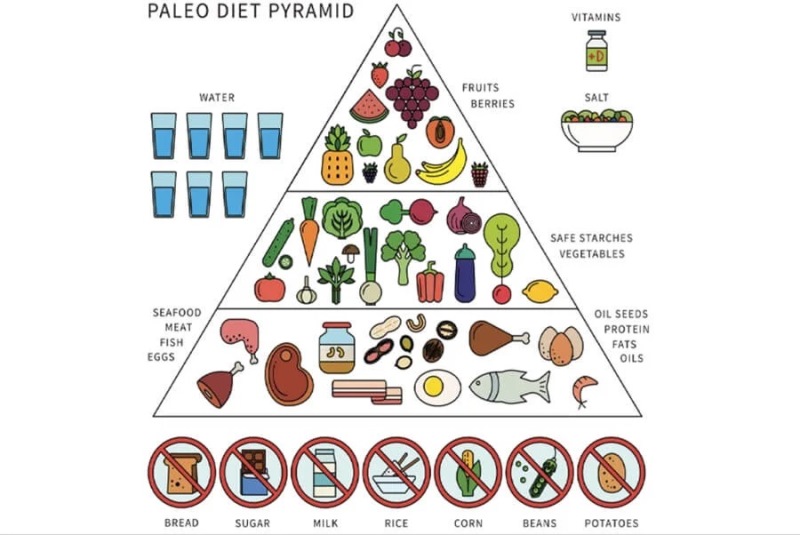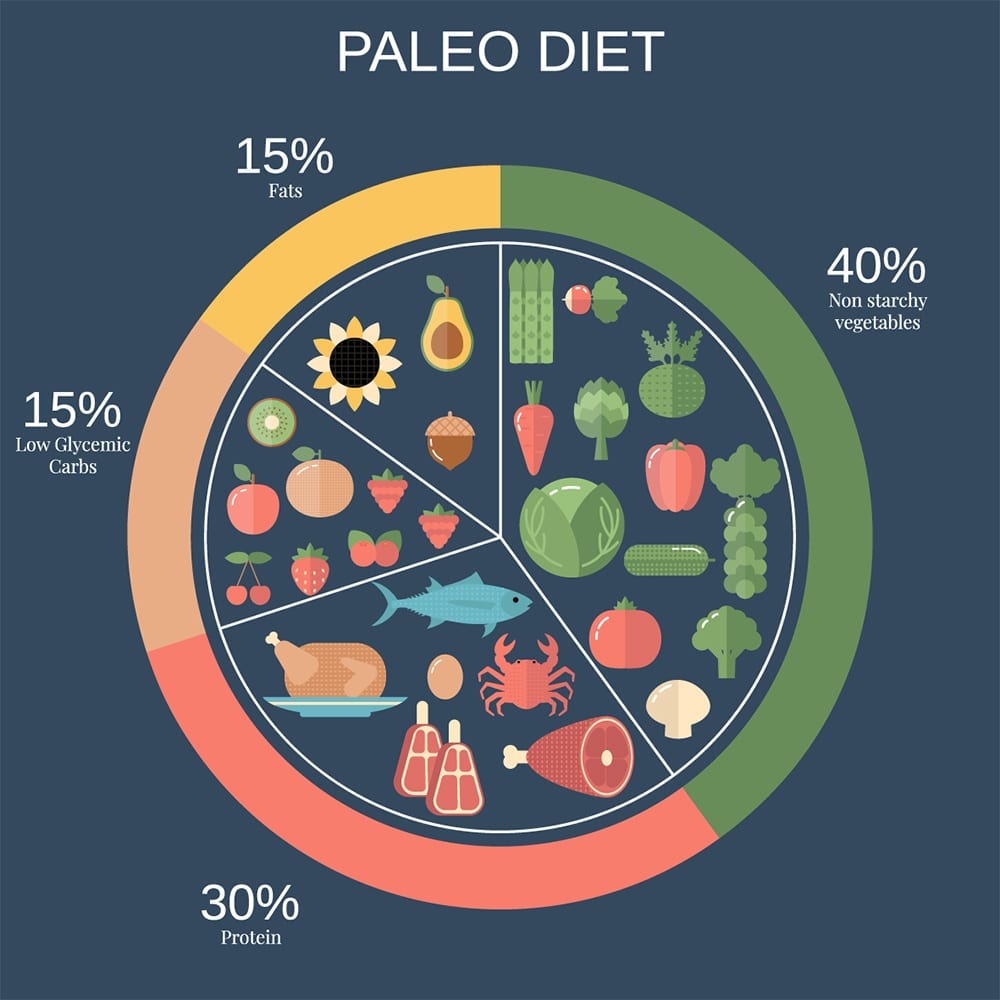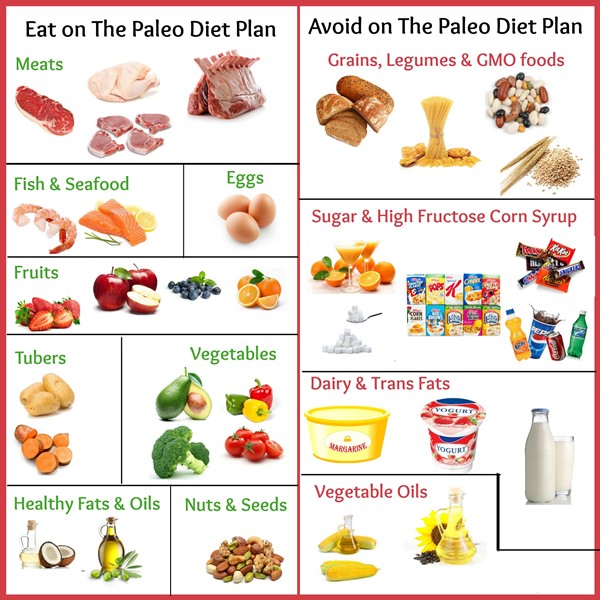Are you tired of constantly feeling sluggish, bloated, and unhealthy? The answer to your problems might just lie in the Paleolithic era. The Paleo diet is a modern nutritional approach that mimics the dietary habits of our ancestors from thousands of years ago. It focuses on whole, unprocessed foods and avoids grains, dairy, and processed sugar.
The Paleo diet has been touted as an effective way to improve overall health and well-being. In this article, we will explore the benefits of the Paleo diet and why it may be the right choice for you.

What Is the Paleo Diet?
The Paleo diet, also known as the Paleolithic diet, is a nutritional approach that mimics the dietary habits of our ancestors from the Paleolithic era. It focuses on consuming whole, unprocessed foods that were available to our hunter-gatherer ancestors. This includes lean meats, fish, fruits, vegetables, nuts, and seeds.
The diet eliminates grains, dairy products, legumes, processed foods, and refined sugar, as these were not part of the Paleolithic diet. The idea behind the paleo diet is that our bodies are genetically adapted to the diet of our hunter-gatherer ancestors. And that by returning to this diet, we can improve our health and reduce the risk of chronic diseases.
Read: What Preventative Health Care Steps Should You Take?
Origins and Principles of the Paleo Diet
The Paleo diet, also known as the Paleolithic diet or the caveman diet, is a nutritional approach that has gained popularity in recent years. The diet is based on the principles of the Paleolithic era, which spanned from 2.6 million years ago to around 10,000 BCE
During this time, humans were hunter-gatherers, and their diet consisted of unprocessed foods that were available in their environment.
The origins of the caveman diet can be traced back to the 1970s when gastroenterologist Walter L. Voegtlin published his book “The Stone Age Diet.” In the book, Voegtlin argued that humans are biologically adapted to the diet of our Paleolithic ancestors. He further argued that modern processed foods and grains are responsible for many chronic diseases that plague us today.

In the 1990s, researcher Loren Cordain expanded on Voegtlin’s ideas and developed the Paleo diet into a more comprehensive nutritional approach. Cordain argued that the modern Western diet, which is high in processed foods, grains, and refined sugar, is responsible for the rise in chronic diseases such as obesity, diabetes, and heart disease.
Read: How to Create a Balanced and Nutritious Meal Plan
Principles of the Paleo Diet
Here are some of the key principles of the Paleolithic diet:

- Emphasis on animal protein: Our Paleolithic ancestors obtained a significant portion of their calories from animal protein, such as lean meats and fish. The Paleo diet emphasizes the consumption of high-quality animal protein sources.
- Fruits and vegetables: Our ancestors also consumed fruits and vegetables, which provide important vitamins, minerals, and antioxidants. The Paleolithic diet encourages the consumption of a wide variety of fruits and vegetables.
- Nuts and seeds: Many of our ancestors also consumed nuts and seeds. These are rich in healthy fats, protein, and fiber. The Paleo diet encourages the consumption of nuts and seeds as a healthy snack.
- Elimination of grains, dairy, and processed foods: Our ancestors did not consume grains, dairy products, or processed foods, as these were unavailable during the Paleolithic era. The diet eliminates these foods from the diet.
- Focus on nutrient density: The caveman diet emphasizes consuming nutrient-dense foods that provide important vitamins, minerals, and antioxidants.
- Reduction in sugar: This diet reduces the intake of sugar and refined carbohydrates, which are known to contribute to chronic diseases such as diabetes and heart disease.
Read: Ketogenic Diet: What it is & How it Works
Health Benefits of the Paleo Diet
Below are some of the health benefits associated with the Paleo diet:
- Reduced inflammation: The Paleo diet is low in processed foods, refined sugar, and grains, which are known to cause inflammation in the body. By reducing inflammation, the diet can help to reduce the risk of chronic diseases such as heart disease, diabetes, and cancer.
- Improved gut health: This diet encourages the consumption of foods that are rich in fiber, such as fruits, vegetables, and nuts. Additionally, these foods can help to improve gut health by promoting the growth of beneficial bacteria in the gut, which can improve digestion, boost the immune system, and reduce inflammation.
- Weight loss and management: The Paleolithic diet is high in protein and fiber, which can help reduce appetite and make you feel full. As a result, this can reduce calorie intake and promote weight loss and weight management.
- Improved blood sugar control: The caveman diet is low in refined carbohydrates and sugar, which can help to improve blood sugar control and reduce the risk of diabetes.
- Improved heart health: This diet is rich in nutrients such as omega-3 fatty acids, which can help to reduce inflammation and improve heart health.
- Improved bone health: The Paleo diet is rich in calcium, magnesium, and other important nutrients for bone health. This can help to reduce the risk of osteoporosis and other bone-related conditions.
- Improved skin health: The Paleolithic diet is rich in antioxidants, which can help to protect the skin from damage caused by free radicals. This can help improve skin health and also reduce the risk of skin-related conditions such as acne and eczema.
Read: How Does Sugar Consumption Affect Your Health?

Criticisms of the Paleo Diet
Although the diet has gained popularity in recent years as a way to improve health and well-being, it has also faced criticism. Some experts in the health and nutrition fields have highlighted possible concerns about this diet. Here are some of the criticisms of the Paleo diet:
We Design & Develop Websites, Android & iOS Apps
Looking to transform your digital presence? We specialize in creating stunning websites and powerful mobile apps for Android and iOS. Let us bring your vision to life with innovative, tailored solutions!
Get Started Today- Lack of scientific evidence: While the Paleo diet is based on the principles of the Paleolithic era, there is limited scientific evidence to support its effectiveness for modern-day humans. Critics argue that the diet may not provide all the necessary nutrients for optimal health. It may also be difficult to sustain long-term.
- Restrictive: The Paleo diet restricts the consumption of many foods that are considered healthy. As a result, it might be difficult to meet nutrient needs. The lack of options can also lead to boredom with limited food choices.
- Expensive: The diet can be costly to follow, as it focuses on high-quality meats, fish, and other protein sources. Critics argue that this can make it difficult for people with limited budgets to follow the diet.
- Potential for high saturated fat intake: Besides being expensive, this ancient diet emphasizes consuming meat and animal products, which can be high in saturated fat. Critics argue this can increase the risk of heart disease and other health problems.
- Unsustainable for the environment: The Paleolithic diet is about eating grass-fed, organic, and wild-caught animal products. Critics argue that the diet is not environmentally sustainable and may contribute to deforestation and climate change.
- Lack of individualization: In addition to being unsustainable, the Paleo diet is a one-size-fits-all approach. And it does not consider individual differences in nutrient needs, health status, and lifestyle factors. Critics argue that a more personalized approach to nutrition may be more effective for overall health and well-being.
Read: Hidden Dangers: What to Avoid in Processed Foods
Implementing the Paleolithic Diet
If you’re interested in the Paleo diet as a way to improve your health and well-being, there are several key steps to consider.

Educate yourself
Before starting the Paleo diet, educate yourself on the principles and guidelines of the diet. This can include reading books, articles, and blogs on the topic and consulting with a registered dietitian or healthcare professional.
Plan your meals
Planning your meals can help you stick to the Paleo diet and ensure you get all the necessary nutrients.
Emphasize whole foods
The Paleo diet emphasizes the consumption of whole, unprocessed foods. This can include fruits, vegetables, lean meats, fish, nuts, and seeds. You should also focus on including a variety of these foods in your meals to ensure you get all the necessary nutrients.
Limit processed foods and refined sugar
The Paleo diet restricts consuming processed foods and refined sugar, which can significantly contribute to inflammation and chronic diseases. Be mindful of the ingredients you eat, and aim to limit processed foods and refined sugar as much as possible.
Modify recipes as best as you can
Admittedly, there isn’t much room for customization. But you can modify some recipes to fit the Paleo diet by substituting ingredients. For example, you can substitute almond flour for wheat flour, coconut oil for butter, and cauliflower rice for regular rice. Experiment with different recipes and modifications to find what works best for you.
Listen to your body
Listen to your body and make adjustments as needed. If you are feeling hungry or fatigued, you may need to increase your protein or healthy fats intake. Furthermore, if you are experiencing digestive issues, you may need to adjust the types of foods you are consuming.
Before you go…
Hey, thank you for reading this blog to the end. I hope it was helpful. Let me tell you a little bit about Nicholas Idoko Technologies. We help businesses and companies build an online presence by developing web, mobile, desktop, and blockchain applications.
We also help aspiring software developers and programmers learn the skills they need to have a successful career. Take your first step to becoming a programming boss by joining our Learn To Code academy today!
Put Your Tech Company on the Map!
Get featured on Nicholas Idoko’s Blog for just $200. Showcase your business, boost credibility, and reach a growing audience eager for tech solutions.
Publish Now










